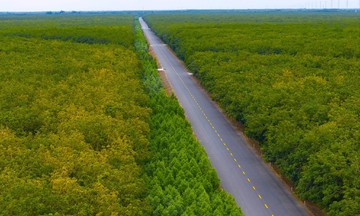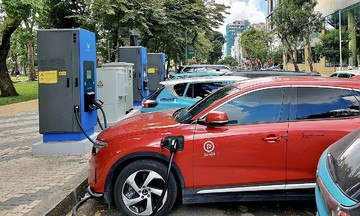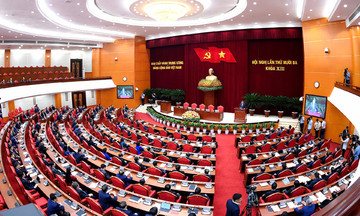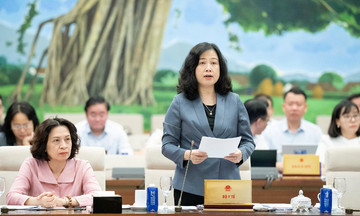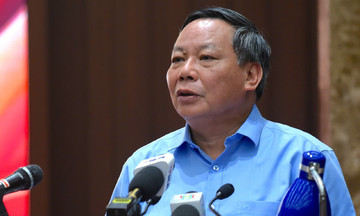In late September, Hoa Khanh ward and Song Kon commune, located about 70 km apart, held a sisterhood ceremony. Hoa Khanh ward, drawing from its "Fund for the Poor," built two solidarity houses, provided 30 support packages (one million dong each) to impoverished households, mostly ethnic minorities, and awarded five scholarships to encourage disadvantaged students. The total value was 120 million dong.
Nguyen Ha Bac, Secretary of Hoa Khanh ward, said this is the initial, practical support for Song Kon. In the future, community organizations will directly connect and support hardship alleviation models and community programs. "When the ward mobilizes resources to help the poor, Song Kon will also be one of the localities to benefit," he said.
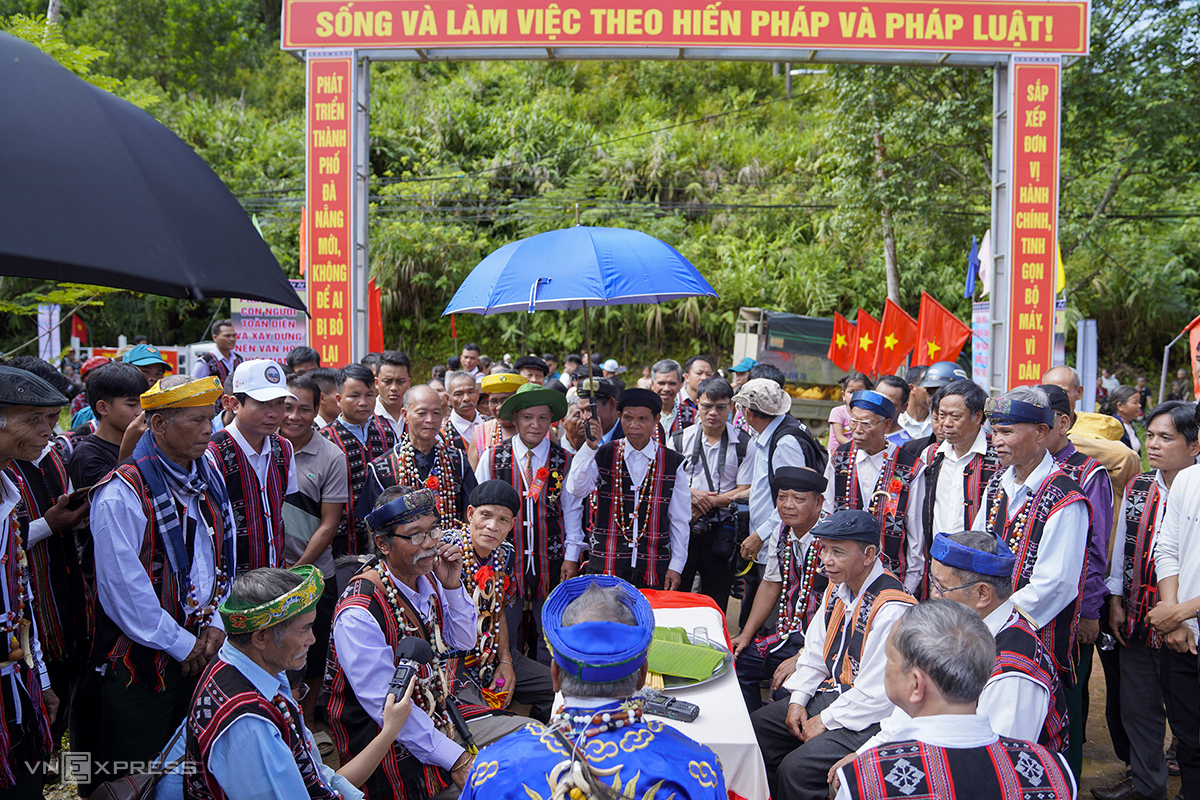 |
Along with the sisterhood with Hoa Khanh ward, after the merger, the Co Tu people from the three former communes of Song Kon, Jo Ngay, and A Ting (now belonging to Song Kon commune) have formed a brotherhood to strengthen solidarity and mutual support. Photo: Nguyen Dong |
While Song Kon doesn't yet have a reciprocal gift, its abundance of valuable medicinal herbs and handicrafts like rattan, black turmeric, and Co Tu woven brocade will become a supply source for its "sister" Hoa Khanh. Goods from Hoa Khanh will also be more easily distributed in this mountainous region.
The Hoa Khanh-Song Kon sisterhood program focuses on several practical areas. In education, schools in Hoa Khanh will partner with schools in Song Kon, providing bookcases, books, school supplies, and encouraging businesses to invest in infrastructure, striving for 100% of children to attend school in better conditions.
Economically, the two sides will cooperate in distributing one commune one product (OCOP) items. Specialties like rattan trays, black turmeric, brocade, and rambutan will have access to the city market, while goods from Hoa Khanh will be brought to the mountains. Hoa Khanh will also support the development of OCOP models, participating in fairs to promote products and increase people's income.
Cultural exchanges are also emphasized to foster understanding and connection between highland and urban residents. The two sides will collaborate on employment and social security, helping ethnic minorities find work in industrial zones for stable income and sustainable poverty reduction. They will also maintain regular visits and support for poor households, policy beneficiaries, and vulnerable individuals.
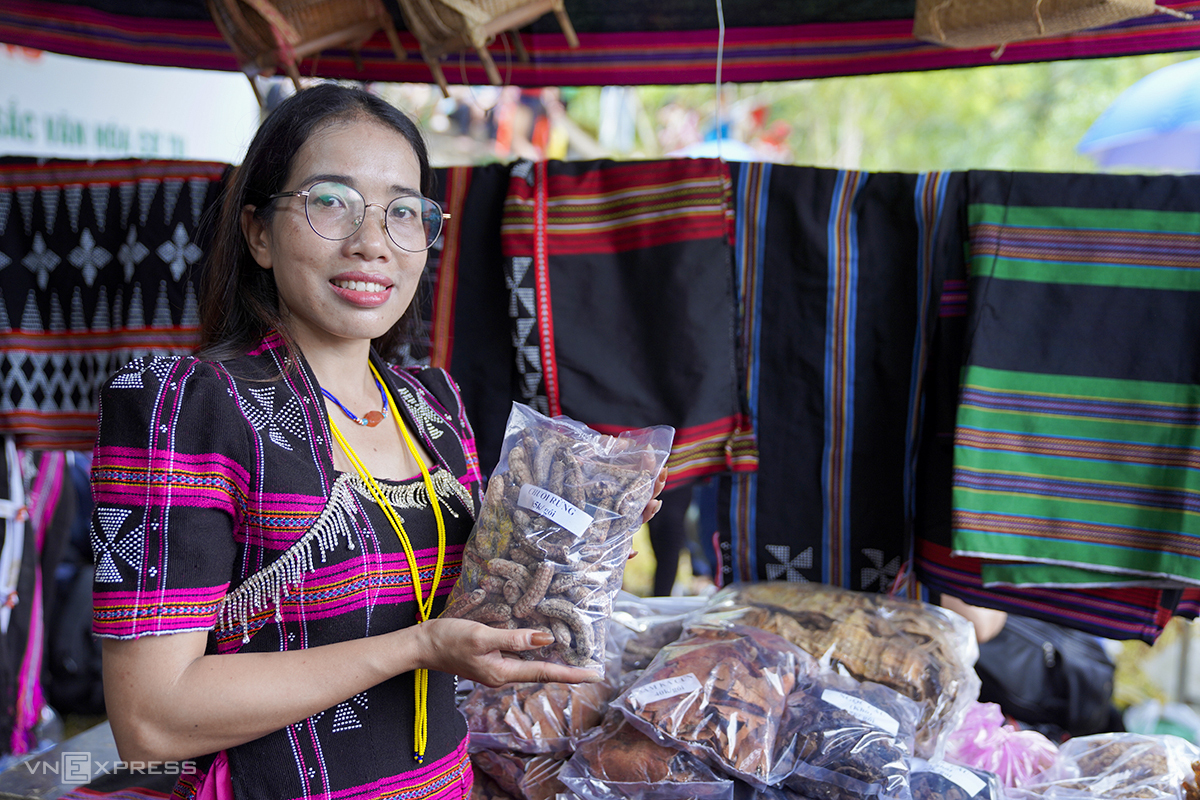 |
Dinh Thi Thin introduces agricultural products and brocade of her people at the Co Tu Culture Festival, 9/2025. Photo: Nguyen Dong |
Dinh Thi Thin, 37, owner of a Co Tu community tourism business in Song Kon commune, said "mountain people will be very happy" to partner with urban wards, creating concrete action plans to help people escape poverty and achieve more sustainable livelihoods.
Song Kon has great potential for medicinal plant development, but success requires a stable market. "Without a market, people will have no livelihood and will become discouraged," she said, citing the failed black turmeric cultivation model in Bho Hong village due to price manipulation and lack of buyers.
Thin said the tradition of sisterhood, previously only among Co Tu villages, is now expanding to include city wards, a "very encouraging" step. "This connection will help promote Co Tu culture, support the consumption of agricultural products and handicrafts, develop tourism, and preserve ethnic cultural identity," she said.
Do Huu Tung, Chairman of the Song Kon Commune People's Committee, hopes the sisterhood ceremony and support from Hoa Khanh ward will not only alleviate immediate difficulties but also create a platform for long-term cooperation. The program will expand markets for agricultural products, create stable jobs, attract budget support, and promote comprehensive development from infrastructure and tourism to investment and industrial zones.
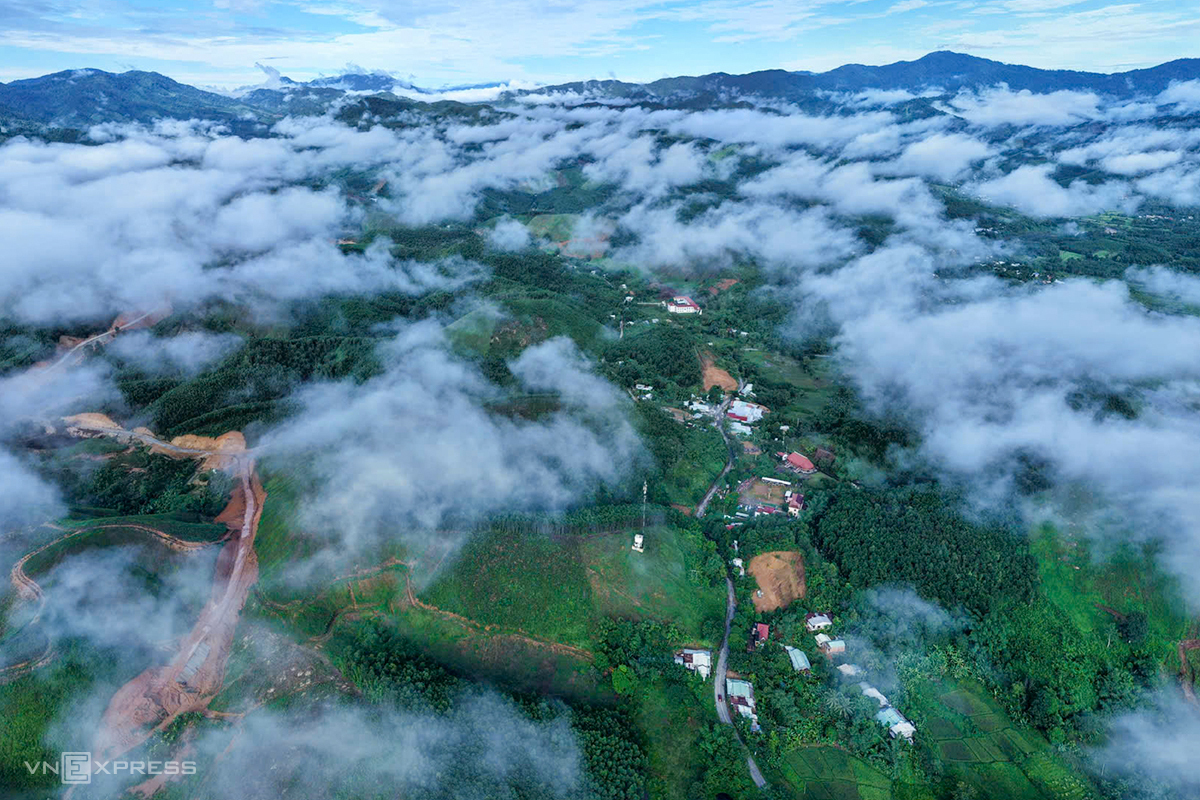 |
Cloud-covered villages partner with lowland communes and wards for socio-economic development and improved livelihoods. Photo: Nguyen Dong |
Since merging with Quang Nam in 8/2025, the Da Nang City Party Committee has assigned 60 lowland communes and wards to partner with 33 communes in mountainous, remote, ethnic minority, border, and island areas to promote sustainable socio-economic development and improve people's quality of life.
This idea came from former Da Nang City Party Committee Secretary Nguyen Van Quang, who, after visiting many highland communes, saw the urgent need for immediate support to ensure even socio-economic development, gradually improving people's lives both materially and spiritually. The Da Nang City Party Committee issued a resolution on this policy.
To date, 89 out of 93 communes and wards in Da Nang have established sisterhood partnerships. Hai Chau ward is partnered with Hung Son commune (over 100 km apart); Son Tra ward with Tra Leng commune (150 km apart); An Hai ward with Tra Linh commune (nearly 200 km apart), and so on.
The goal of these partnerships is to foster mutual support and development, improve living standards, reduce poverty, and build a more prosperous homeland. It also aims to strengthen Party and government operations at both levels. The partners will learn from each other, sharing leadership and management experience, community mobilization strategies, and methods for developing a stronger cadre team.
Lowland communes and wards will send officials to highland communes to provide professional guidance; mountain communes will send officials to wards to learn from their experience, rotating for at least three months. The wards are also committed to helping communes apply information technology, streamlining procedures for better citizen services.
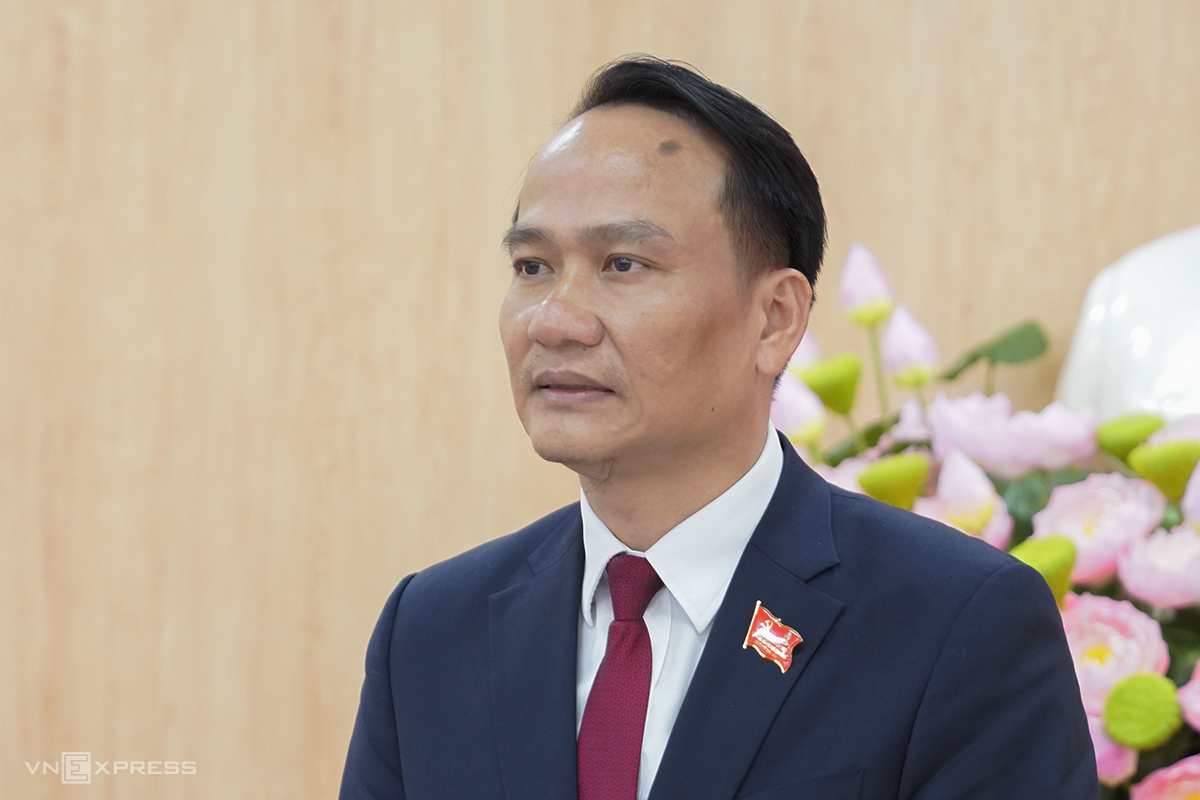 |
Nguyen Dinh Vinh, Permanent Deputy Secretary of the Da Nang City Party Committee, discusses the city's ongoing commune and ward sisterhood program. Photo: Nguyen Dong |
Nguyen Dinh Vinh, Permanent Deputy Secretary of the Da Nang City Party Committee, assesses that the sisterhood program is no longer just symbolic or focused on cultural exchange but is becoming more substantive. Urban communes and wards will connect businesses for investment, create jobs, and support highland communes in producing and selling agricultural products, OCOP products, and handicrafts, helping to increase incomes and reduce poverty.
In addition, urban wards will also provide support in healthcare, education, and social security, including medical examination and treatment, medical supplies; sharing healthcare experience; supporting learning equipment, encouraging full school attendance; and calling for the construction of solidarity houses, public works, and livelihood models for disadvantaged households.
"These partnerships are based on voluntarism, solidarity, and equality, leveraging each other's strengths and sharing difficulties for sustainable development," Nguyen Dinh Vinh emphasized. In September, the city achieved 100% participation in the sisterhood program, implementing solutions to "bring" the mountains closer to the city.
Nguyen Dong





